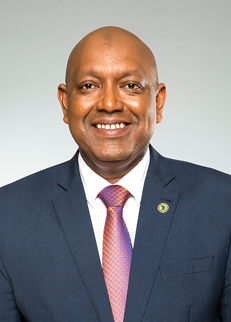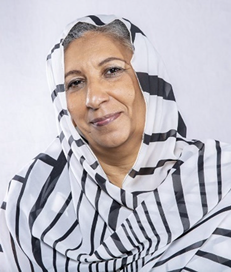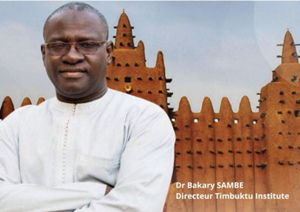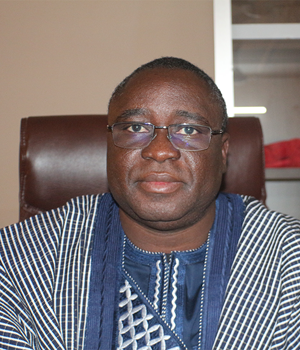Editorial
The Sahel: Challenges and opportunities
-
- Published online by Cambridge University Press:
- 13 May 2022, pp. 765-779
-
- Article
-
- You have access
- HTML
- Export citation
Voices from the field
Women of the Sahel: Portraits of women living through violence and conflict in the Sahel
-
- Published online by Cambridge University Press:
- 13 May 2022, pp. 781-794
-
- Article
- Export citation
Perspectives
Interview with Yero Baldeh and Amel Hamza: Director of the Transition States Coordination Office of the African Development Bank (Y. B.), and Acting Director of the Gender, Women and Civil Society Department and Manager, Gender and Women Empowerment Division of the African Development Bank (A. H.)
-
- Published online by Cambridge University Press:
- 16 May 2022, pp. 795-805
-
- Article
- Export citation
Interview with Bakary Sambe: Regional Director of the Timbuktu Institute
-
- Published online by Cambridge University Press:
- 12 May 2022, pp. 807-816
-
- Article
- Export citation
Interview with Lazare W. Zoungrana: Secretary-general of the Burkinabe Red Cross Society
-
- Published online by Cambridge University Press:
- 18 March 2022, pp. 817-829
-
- Article
- Export citation
Interview with Dr Gilles Yabi: Founder and president of WATHI
-
- Published online by Cambridge University Press:
- 13 May 2022, pp. 831-841
-
- Article
- Export citation
To respect and ensure respect for IHL: Interview with representatives of the French Ministry for the Armed Forces and Ministry of Europe and Foreign Affairs
-
- Published online by Cambridge University Press:
- 16 May 2022, pp. 843-858
-
- Article
- Export citation
Implementing IHL in the Sahel
Challenges to implementation of humanitarian access norms in the Sahel
-
- Published online by Cambridge University Press:
- 18 April 2022, pp. 859-882
-
- Article
- Export citation
Reparations for victims of terrorist acts in Sahel conflicts: The case of Niger
-
- Published online by Cambridge University Press:
- 12 May 2022, pp. 883-900
-
- Article
- Export citation
The applicability of international humanitarian law to acts of violence perpetrated by unidentified armed individuals in the Sahel: The case of Burkina Faso
-
- Published online by Cambridge University Press:
- 06 May 2022, pp. 901-921
-
- Article
- Export citation
Internal Displacement
Why communities hosting internally displaced persons in the Sahel need stronger and more effective legal protection
-
- Published online by Cambridge University Press:
- 13 April 2022, pp. 923-957
-
- Article
- Export citation
The right to water for internally displaced persons in the Sahel region
-
- Published online by Cambridge University Press:
- 09 March 2022, pp. 959-980
-
- Article
-
- You have access
- HTML
- Export citation
Climate Change
Interview with His Excellency Mr Abdou Abarry: Permanent Representative of Niger to the United Nations
-
- Published online by Cambridge University Press:
- 12 May 2022, pp. 981-993
-
- Article
- Export citation
The importance of food systems in a climate crisis for peace and security in the Sahel
-
- Published online by Cambridge University Press:
- 13 May 2022, pp. 995-1028
-
- Article
- Export citation
Climate-induced displacement in the Sahel: A question of classification
-
- Published online by Cambridge University Press:
- 21 February 2022, pp. 1029-1065
-
- Article
- Export citation
Librarian's Pick
The President on Trial: Prosecuting Hissène Habré Edited by Sharon Weill, Kim Thuy Seelinger and Kerstin Bree Carlson *
-
- Published online by Cambridge University Press:
- 21 April 2022, pp. 1067-1071
-
- Article
- Export citation
Research Article
Theorizing empirical court research: The test case of the trial of Hissène Habré
-
- Published online by Cambridge University Press:
- 13 April 2022, pp. 1073-1081
-
- Article
- Export citation
Front Cover (OFC, IFC) and matter
IRC volume 103 issue 918 Cover and Front matter
-
- Published online by Cambridge University Press:
- 19 May 2022, pp. f1-f4
-
- Article
-
- You have access
- Export citation
Back Cover (IBC, OBC) and matter
IRC volume 103 issue 918 Cover and Back matter
-
- Published online by Cambridge University Press:
- 19 May 2022, pp. b1-b2
-
- Article
-
- You have access
- Export citation







